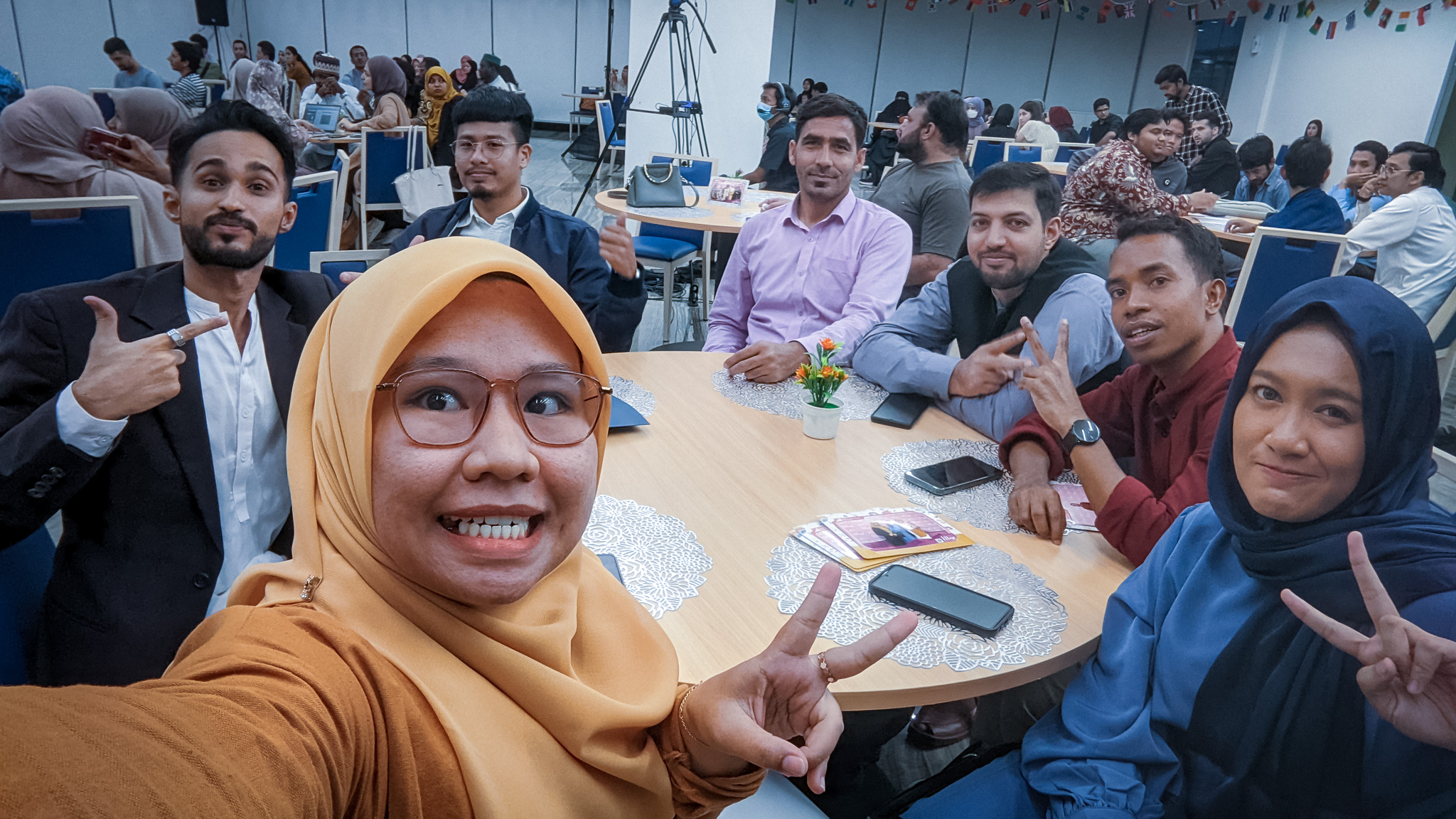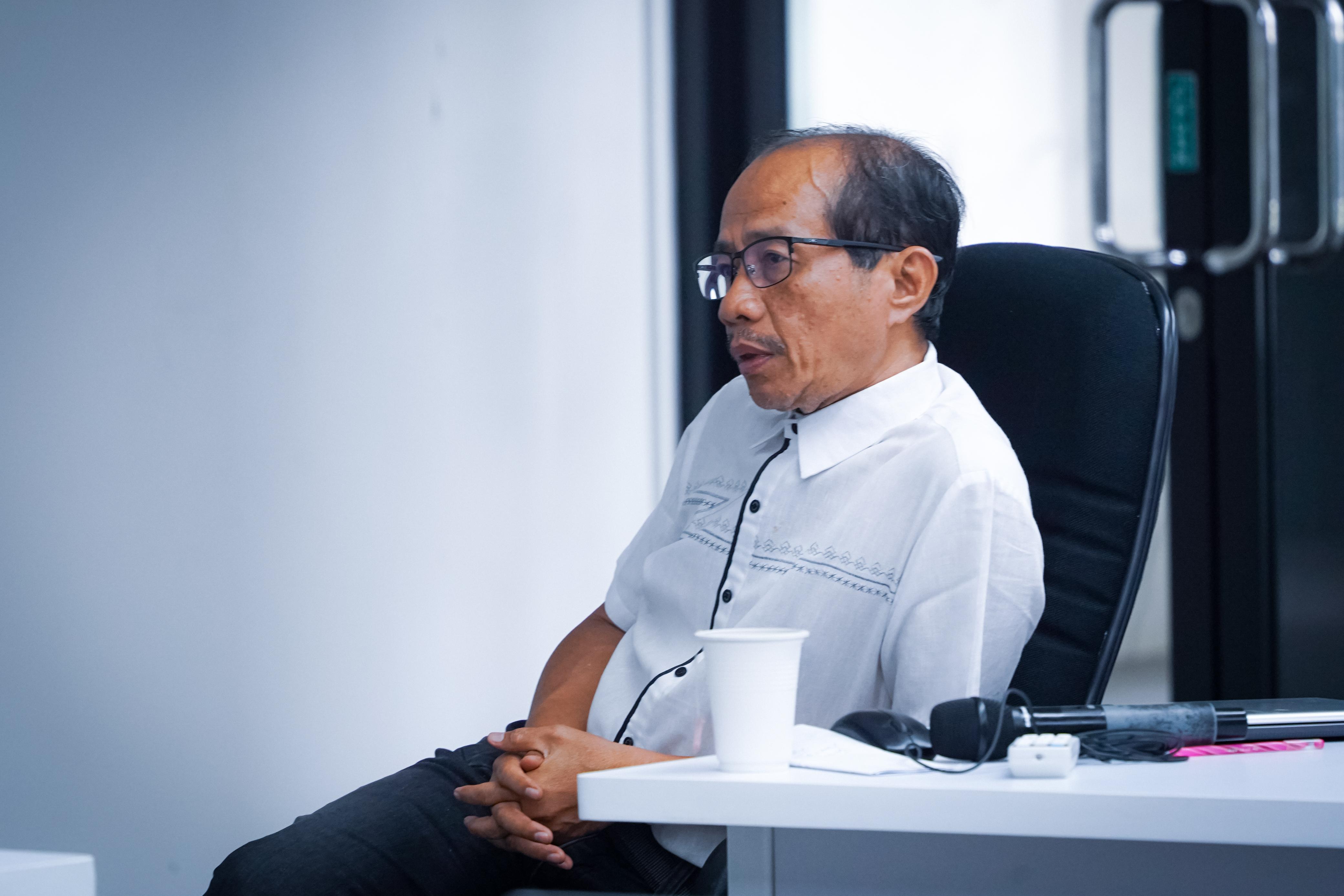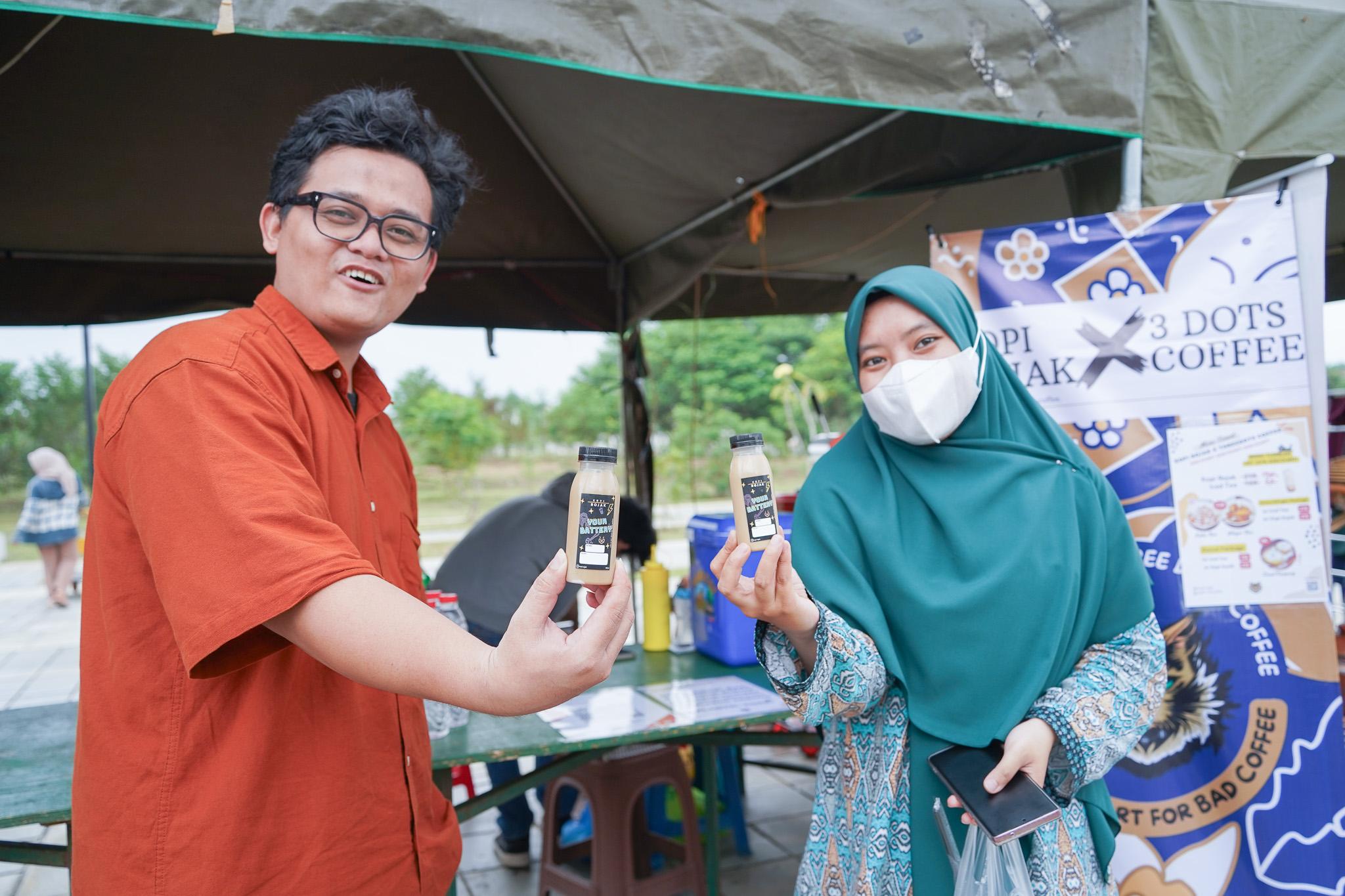Religious Harmony: Ramadan Through the Eyes of UIII’s Non-Muslim Student
May 03, 2023Contributor: Magello Fenis | Editor: Supriyono

"As someone with a different faith and cultural background, being part of a Muslim community is a new experience for me," says Manuel, a foreign student at the Faculty of Social Sciences of the Universitas Islam International Indonesia (UIII).
Manuel Jeronimo Freitas, who goes by Manuel among his friends, hails from Dili, Timor Leste, one of two Catholic-majority nations in Southeast Asia. As Manuel has stayed at the UIII dorm during the whole month of this year’s Ramadan, this is his first-time encountering Ramadan experience in the world’s largest Muslim-majority country.
Being a part of the Muslim community at UIII during Ramadan can be a unique and inspiring experience, providing individuals with an opportunity to learn more about Islam and its traditions while being part of a welcoming and inclusive community.
Manuel observes notable differences in how Ramadan is celebrated in Indonesia and Timor-Leste. He said: “Indonesia has a larger Muslim population, and thus, Ramadan is widely celebrated as a festive season. People decorate their homes, streets, and markets with lanterns and other decorations, creating a lively atmosphere. In contrast, Ramadan in Timor-Leste is not as widely celebrated, mainly because of the small Muslim minority population.”
It also applies to the food and meals where Manuel testifies that in his country, the moment of breaking fast is not as elaborate as in Indonesia. In Timor Leste, Muslims may break their fast with simple meals. Contrarily, in Indonesia, breaking the fast is often a communal affair where family and friends gather in large groups to enjoy a diverse range of delicious food and drinks.
“One of the most memorable experiences during Ramadan in Indonesia, particularly at UIII, is the tradition of Iftar, which is the breaking of the fast at sunset. Families and friends come together to enjoy a meal after a day of fasting, creating an atmosphere of warmth, joy, and togetherness. Special foods and drinks are often served during Iftar, making it a unique and festive occasion,” says Manuel.
He also testifies that the Tarawih Prayer is a tradition that catches his attention. “The mosques are beautifully decorated and usually filled with worshippers, creating a serene and spiritual atmosphere. Charitable acts like Zakat and Sadqa-e-Fitr are common during the month of Ramadan in university. These activities promote a sense of community, generosity, and solidarity among the people,” adds Manuel.
Further, Manuel views that the difference is also reflected in the working duration in which many businesses in Indonesia reduce their working hours, especially during the final ten days of the holy month. Yet, this scene has never been part of businesses in Timor Leste. Instead, the celebration of Eid al-Fitr in his country is only a one-day holiday, and regular work schedules continue after that.
When asked about his reason for studying at UIII, Manuel emphasized that the university is a strong proponent of tolerance and inclusivity, offering full scholarships to talented individuals from different backgrounds. This approach is enough for Manuel to join an enriching environment where students from various religions, races, ethnicities, and nationalities can learn and support each other, ultimately creating a robust network of professionals.
Hearing about a non-Muslim's experience in the world's largest Muslim-majority country can be both fascinating and enjoyable. Such experiences remind us that the universal values of compassion, generosity, and unity are more powerful than any differences we may have. These values lie at the heart of Ramadan, and we can all learn from them regardless of our backgrounds.
Manuel's message to the world, inspired by his experience observing Ramadan, is to nurture empathy, kindness, and solidarity. He encourages us to strive for a shared sense of community and understanding, celebrating our diverse cultures, faiths, and backgrounds. By engaging in self-reflection and self-improvement, we can work towards inner purity and promote a more harmonious and inclusive world.
- UIII Extends Application Deadline for 2025 International Admissions
- What Does Eid al-Fitr Mean for the UIII Academic Community?
- UIII PhD Scholar Ararat Kostanian Delivers Lecture at Armenia's Yerevan State University
- Swedish Ambassador to Indonesia Applauds UIII’s Vision, Explores Future Collaboration
- Depok Mayor Supports UIII as the Green Lung of Depok and Beyond
- Depok Mayor Pledges to Build Performance Hall at UIII
- New Parking Facility Launched, Part of UIII-Sentra Medika Hospital Partnership
- Yogyakarta’s UII Won 1st FisFastFest’s Clash of Campuses
- Vice Minister of Religious Affairs Praises UIII as a Global Hub for Islamic Education
- Hurray!! UIII Wins Football Championship


